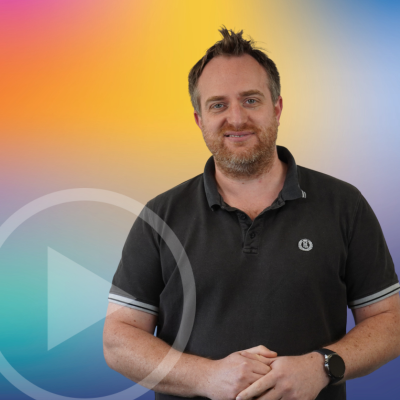
Hear from our managing director, Richard Belcher, about his take on the world of virtual events.
In the events industry, if the start of the 2020s was when virtual finally found its feet, 2023 so far has been when it tripped. As the digital conference streaming platform Hopin was sold for £50m, far below its pandemic valuation, it sparked the question amongst event organisers, what really lies in the future for virtual events? As we near the end of the year with bottom lines starting to squeeze, companies are looking to save money but remain connected with their audience. So, will virtual get back up and look to focus on what it does best - deliver content?
Zoom Fatigue
When the world opened back up at the start of 2022, everyone talked of virtual fatigue and flocked to events in droves. With record numbers of events and staggering attendance figures, 2023 was always going to have a lot to live up to, to create new levels of exposure. The fatigue of web hosted events - from Teams calls to conferences - cast a dark shadow across the world of virtual. But what is it that really put people off this form of communication?
Virtual events evolved at record speed during the pandemic but there are a few things it never solved consistently such as networking and engaging with exhibitors. It is possible that virtual will never beat face-to-face for those things. What seems to have been forgotten is the power of virtual as a chariot for King Content himself.
The Future of Virtual Events
At First Sight Media, we believe that people aren’t tired of virtual, they’re tired of poor quality, bad connections and the feeling of disengagement that follows. Therefore, virtual events are an ideal vehicle to deliver content, specifically, event content.
People are drawn to events because of what they’ll learn from attending, rather than what exhibitors they’ll get to speak to. So perhaps we can agree that the power of content is harnessed as a mechanism for bringing in an audience.
We can take this further, if we remove the end goal of making money, and instead propose that an event is a mechanism for exposure. Exposure for exhibitors, exposure for an idea, exposure for a product launch or brand activation? You're communicating something and telling as many people as possible its purpose.
If we take a conference as an example - a panel discussion on a topical subject in this case - there are 2 things to expose by sharing the discussion with an audience:
- Exposure for the theories within the discussion
- Exposure for your event as the leading channel for creating such discussion
There's even likely a third channel of exposure here:
- The brands behind the panellists (and maybe a sponsor for the session or stage...)
However many there are, it could well be that the primary objective of many events is exposure. We can still say this if we return to the idea that revenue generation is more important than this... What better way to get more people through the exhibition hall doors or direct traffic to your website (both of which should lead to more income) than to tell as many people as possible?
If so, virtual and hybrid should be primary vehicles for delivery because they can reach more people faster and more cost effectively. There are always going to be people that can’t/won’t travel to your event so by making it accessible online you can expose any or all of the points above.
The Power of Virtual To Maximise Reach
One of First Sight Media’s customers created a huge following during the pandemic. In the past they had run their global event in 10 regional ‘hubs’, with 100-200 people joining them and their senior staff offline. When they flipped these to virtual with us, they hosted a single global kick-off session with over 9,000 connections and regional sessions with a further 5,000 viewers. With all users having to enter credentials to view, they created 14,000 unique leads with 6 virtual events. That’s 7 times the exposure of their combined offline sessions. Seven times! And notably, at a third of the cost. They continued this series throughout 2021 and into 2022, growing their following but also drastically increasing engagement.
It’s surprising that at the end of 2022, they went back to offline where they continue to engage with around 1,500-2,000 viewers, essentially abandoning a new, loyal, 12,000 audience members.
And this seems to be the trend for virtual only events throughout 2023. Virtual’s power to keep an audience engaged and generate maximum exposure seems to have been widely forgotten, even with the considerable cost benefits. Is this because content may well be king, but events are really run by Queen Footfall and sponsors and exhibitors demanding an increase in people through the door before committing to pay for their stands? Yes, we’ve heard the argument: “if you make it available online, people won’t show up, and that’s not going to make my exhibitors happy”. But that shouldn’t be about one or the other (sorry exhibitors), it should be about creating experiences for your audiences, in-person, hybrid or virtual that make them want to engage with you again and again. Perhaps they’re virtual this year but your content will give them a good reason to translate to in-person next year.
But is anyone arguing virtual’s ability to deliver content? And if it's fully virtual, we’re talking about a perfectly produced session that feels like a TV show, not like a Zoom meeting or Teams gathering. A webinar that's packed with audience engagement, expert theories and panel discussion. A webinar whose format has been tailored to fit its audience perfectly - talking to them directly and leaving them suitably satisfied with an appetite to return for the next one.
It's my view that people will re-establish a place for virtual in their event timelines. In 2024 we expect sustainability and cost to be driving factors which will hand the power back to King Content and reignite the power of virtual to deliver. Live events will keep getting stronger but virtual will get back up and rise too. Perhaps catering for both live and virtual is the answer...
Richard Belcher, Managing Director, First Sight Media
Get in touch today to discover how we can help with your next virtual event.
